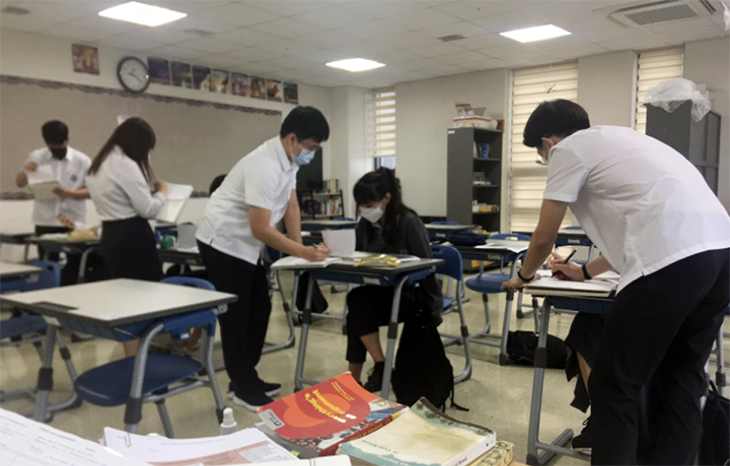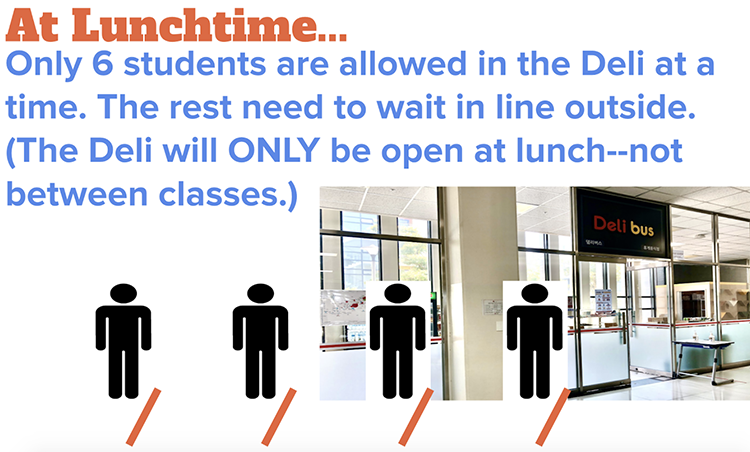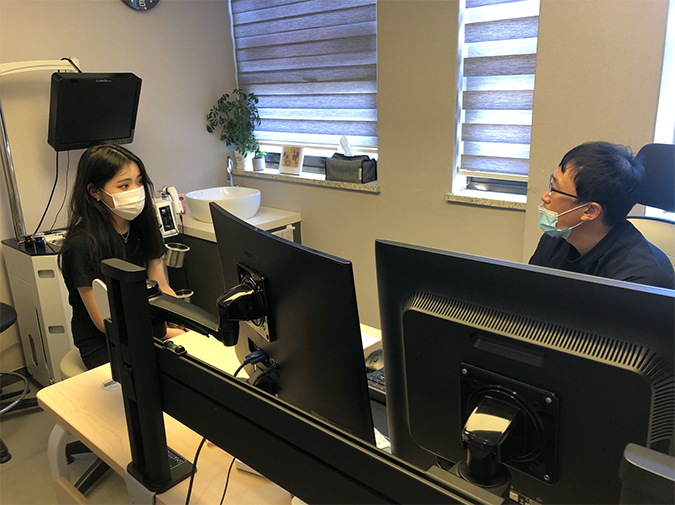As students across the nation went into the summer break of 2020, the question of whether they will be back to school again in the coming fall semester remained unclear. The entire global community had come to a screeching halt as the outbreak of novel coronavirus quickly escalated into a worldwide pandemic, and the situation was no different for students of Korean International School Jeju (KISJ).

However, student life must go on. Despite the prolonged impact of COVID-19, the students of KISJ are now back to school for its fall semester, but not without a number of unprecedented changes to their daily lives on campus. The cafeteria only operates at partial capacity with staggered lunch schedules in an attempt to keep the fewest number of students in it. Other places on campus also allow just a few students at a time with reduced operating hours. Temperature checks have become a routine procedure, and students are required to wear masks at all times. Almost all the annual school events that involve gathering of large crowds of students have also been canceled altogether much to many students’ chagrin.


These precautionary measures are necessary to minimize the spread of the virus and care for the students’ wellbeing. However, the effects of COVID-19 seem to linger on as shown by the second wave of infections in South Korea. In response, increasing attention has been given to many ways on how to strengthen the human body to minimize the health risks of the virus. In this regard, schools across the nation may be able to partake in such ways to better prepare the students for coping with the global pandemic.
A case in point is KISJ’s policy against outdoor activities. The current guideline at KISJ prohibits students from going outside during breaks or engaging in outdoor activities. For example, the students cannot even go out during the one-hour lunchtime, and outdoor sports like tennis have been banned due to COVID-19. However, recent reports by scientists suggest that it may be a good idea for KISJ to ease this particular restriction and allow the students to be outside from time to time. Scientists have recently focused on the role of vitamin D in fighting off COVID-19. It has been reported that countries with higher levels of vitamin D deficiency in their populations show more cases of COVID-19 infections and severity of those cases, including the mortality rate, was also closely linked to vitamin D deficiency. Accordingly, UK health organizations have advised people to get a sufficient amount of vitamin D from either direct sunlight or supplements. Furthermore, the sunlight not only assists in the synthesis of vitamin D, but also shortens the lives of the novel coronavirus in the environment. The ultraviolet ray in sunlight is associated with the lower growth rates of most viruses, especially for coronaviruses which are large in size.

To gain more insight into these recent reports regarding the importance of outdoor activities, I spoke to Dr. Gilwoo Goo who specializes in family medicine as the director at Century Health Clinic in Jeju City. He answered, “being exposed to outside air that allows adequate ventilation does reduce the possibility of aerosol transmission compared to being inside enclosed areas.” He also added, “vitamin D plays an important role in the immune-related metabolic processes and is synthesized when the skin is exposed to ultraviolet light.” In that sense, Dr. Goo explained that “time spent outdoors can help students maintain healthy conditions and prevent the degradation of the immune system.”Letting students be out and about, however, should not be mistaken as the only solution to combating COVID-19 on school campuses. Dr. Goo stresses this part as well, “being exposed to sunlight does kill pathogens in the environment, but will likely have minimal effect on the ones within living organisms.” He also added, “it is still important to keep the well-established social distancing measures even when exercising and wear masks whenever students are in close proximity with each other… integrating outside activities into student schedules must be considered with how it fits and balances with the current curriculum.”
When it comes to finding the best solution for dealing with the novel coronavirus, it seems that the answer is still under search. However, as it becomes more and more probable that students will have to live with various precautions for a prolonged period of time, letting students be proactive in advancing their immune systems and engaging in intermittent outdoor activities under controlled environments may be worth discussing at this point.

Jeong Bin Kim
Grade 11
Korea International School, Jeju

